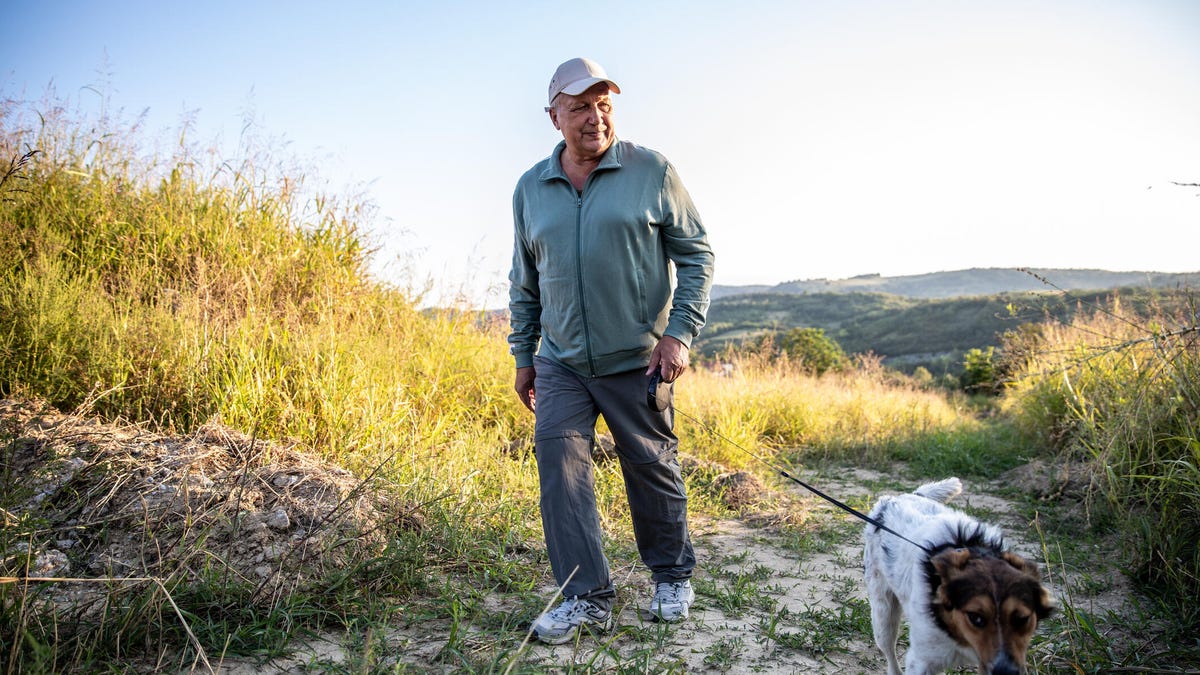 Why You Can Trust CNET
Why You Can Trust CNET 4 Ways Fitness Is Key to Healthy Aging, and How to Start
Physical activity not only helps you live longer, but it also helps keep your mind and body in top condition.

Aging is an inevitable part of life, triggering various changes that impact our health, both physical and mental. While exercising in your 50s and beyond may seem challenging, fitness is a powerful tool to combat or counteract some of these unwanted changes.
From muscles to bones to cognitive function, the immune system and overall longevity, you can see vast improvements in your health with just a little bit of exercise per day. And the best part is it's never too late to start.
Here's how fitness can improve your health as you age.
Stronger muscles and bones
From lifting groceries to climbing stairs, there are a lot of activities that rely on strong bones and muscles. Aging typically leads to loss of muscle mass and bone density, often making it difficult for individuals to maintain an active and independent lifestyle. Engaging in regular exercise can help prevent these common side effects of aging, making it easier to take care of yourself in old age while reducing the risk of injuries like falls.
Time reported that resistance training is one of the most effective methods for mitigating -- or even reversing -- age-related muscle decline, as it builds and preserves muscle strength and power essential for tasks. Researchers have found benefits even in patients in their late 80s who use mobility devices such as canes.
And when it comes to your bones, weight-bearing exercises encourage maintenance of bone density, prevent osteoporosis and lower your risk of fractures, per Harvard Health. Any physical activity that requires your bones to support your weight counts as a weight-bearing exercise, including walking or strength training.
Healthier brain
A healthy brain is fundamental to daily life. Basic tasks like brushing your teeth and washing your hands, as well as complex activities such as driving and decision-making, require a well-functioning brain.
Aging affects memory, attention, thinking and other types of cognitive function, which is known as age-related cognitive decline. Exercise emerges as a powerful ally against this decline, reducing the risk of diseases like Alzheimer's and enhancing cognitive function. The National Council on Aging reports that brain aging can be slowed by 10 years with intense or moderate exercise.
More robust immune system
The immune system safeguards the body from harmful invaders such as viruses, bacteria and parasites. Using a network of cells, tissues and organs, it recognizes and eliminates these threats. This maintains a balance for overall health and protection.
Your immune system is expected to decline as you age, making the body more susceptible to infections and reducing the effectiveness of vaccinations. This is where exercise can help.
A University of Birmingham study compared the immune systems of a group of cyclists aged 57 to 80 to the immune systems of younger individuals and found that the cyclists' immune systems didn't exhibit signs of aging. Their thymuses produced T cells (which defend against illness) at a rate comparable to younger individuals, indicating a more robust immune system. This is consistent with previous research.
Longer life
Physical activity lowers the likelihood of various illnesses like heart disease, type 2 diabetes and some types of cancer -- which are some of the most common causes of death in the US. Engaging in physical activity is an effective preventative measure to reduce your risk of these conditions, some of which also become more common with age.
Studies consistently indicate that regular exercise reduces overall mortality and extends lifespan, including a large research study by the American Heart Association that found that individuals who exercise between two and four times the recommended amount have the lowest risk of mortality. However, those who worked out less (meeting the guidelines rather than exceeding them) also had lower mortality rates.
Another thing to consider is the length of your telomeres, which are the caps on DNA strands that shorten with time and are a marker of biological age. Research from Brigham Young University showed that being "highly active" is associated with longer telomeres, with a nine-year reduction in biological age in highly active people compared to sedentary people.
It's never too late to start
Don't let your age stop you from prioritizing fitness. Even if you start today, getting active can significantly improve your health, both in the present and as you continue to age.
If you're 65 or older, the Centers for Disease Control and Prevention recommends at least 150 minutes a week of moderate-intensity activity, along with two days of muscle-strengthening activities and some balancing activities. But any level of activity is better than none. A safe place to start if you're a beginner is by taking a short brisk walk daily.
Keep in mind you want to tailor your workout routine to your current ability level. And if you have an existing condition like arthritis or high blood pressure that could impact your ability to exercise, consult with your doctor to find a routine that works for you.
Other keys to healthy aging
Exercise plays a vital role in healthy aging. However, there are many things beyond exercise that influence how we age. If you want to ensure healthy aging, consider what changes can be made to your lifestyle and habits. For example, the National Institute on Aging suggests you avoid smoking or heavy drinking, maintain a well-rounded and nutritious diet, get adequate sleep and foster meaningful relationships with friends and family.